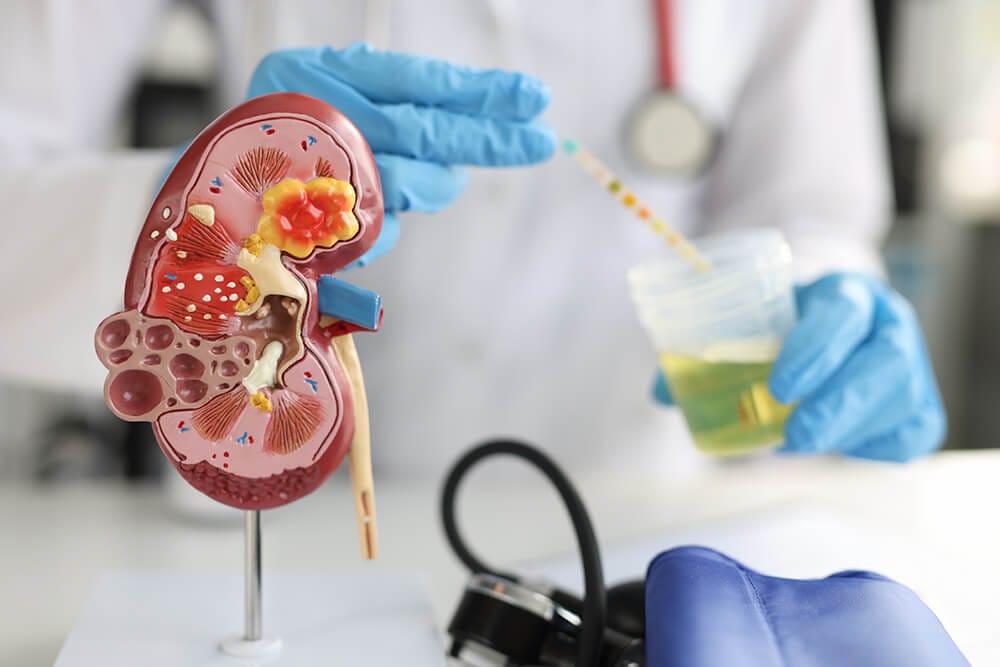
Early Signs Of Pregnancy: Missed Periods, Breast Changes & More
Early pregnancy symptoms
Pregnancy is the phase when a woman conceives a child. Couples who have intercourse without the use of condoms or birth control pills, in the hopes of getting pregnant, need to look out for certain symptoms and signs, so that they can be sure of the success of the fertilization of the egg by the sperm.
Pregnancy and giving birth to a child have been associated with preserving the genetic material of the species and also as a way to ensure that a particular lineage continues in the future. While some couples actively try and get pregnant, others can have accidental unprotected sex and do not wish to get pregnant. Before taking abortive pills that can cause damage to the female system, checking for signs of pregnancy can help.
When do pregnancy symptoms start?
Once the periods are over, the female body begins to get ready for another menstrual cycle. This involves getting the body ready to fertilize the eggs and getting the uterus prepared for implantation. So, ideally, the first day of ovulation can be considered the first day of pregnancy, whether the woman had intercourse or not.
In case fertilization did take place, the development of the fetus can be counted as the first day of pregnancy and the missing of a period. This is usually around the 15th day past the stipulated period’s date. While the menstrual cycle can fluctuate, people who had sex during the ovulating phase should consider this as a sign to get tested.
1 Missed periods & care tips
The very first sign of pregnancy is that the woman misses her periods. Periods or menstrual bleeding occur when the mature egg is not fertilized. This leads to the body shedding all the signs of preparations for pregnancy. But, when the egg gets fertilized by a sperm, the zygote is taken and implanted in the uterine wall. This causes missed periods.
The ovaries are also signaled to stop producing more eggs. Many women have irregular periods due to stressful lifestyles or genetic conditions. In such instances, if the woman had sex and missed her periods, she can take a home pregnancy test to confirm whether she is pregnant or not.
Care Tips:
Opt for a home pregnancy test kit. If the results come as positive, consulting a doctor for further care will be effective.
2. Fatigue & care tips
Every woman has a different pregnancy story. Some can feel the symptoms even before missed periods, while some cannot detect pregnancy, even when they are already a month pregnant. An early pregnancy symptom is fatigue. This is due to the changes the bodies undergo.
Early during the pregnancy, progesterone is produced in greater amounts. This is done to ensure that the baby grows healthy. Along with ensuring the safety of the fetus, progesterone also slows down metabolism. Anemia can also be a reason behind tiredness.
Care Tips:
Getting enough sleep and having a diet rich in iron and folic acid is a must. The early pregnancy fatigue usually goes away during the fourth month of pregnancy.
3. Nausea, vomiting & care tips
One of the most guaranteed early signs of pregnancy is morning sickness. During morning sickness, pregnant women lose appetite, feel nauseous, and vomit a lot. While this is termed as ‘morning sickness’, the symptoms can occur throughout the day. Some women even develop allergies to certain foods. The first trimester is marked by changing intensity of the morning sickness symptoms.
Care Tips:
It is essential to stay hydrated during this time. While a majority of women suffering from morning sickness have praised saltine crackers for staying with them, the food that does not cause nausea can depend from woman to woman.
4. Increase in urination & care tips
Pregnancy also causes women to urinate more frequently. The number of fluids that are involved in the care for the growing fetus and the amount of water that expecting mothers drink to stay hydrated increases kidney functions. The pressure of the growing fetus too places a lot of pressure on the bladder, causing frequent trips to the washroom. Women also lose control over their bladder and might urinate on the spot.
Care Tips:
It is not healthy to cut out water consumption, rather, it is advised to drink an extra glass of water every day. Planning the bathroom trips should be done. If the woman is not going to any office, she can set up her workspace near the bathroom to prevent accidental leaking.
5.Breast changes & care tips
Changes in breast size occur both during pregnancy and even prior to the onset of periods. During pregnancy, the breasts become tender and swollen. The areolas or nipples become larger and also become darker in color. The changes in the breasts in terms of size continue throughout the pregnancy duration.
When the woman becomes pregnant, her mammary glands are prepared to be full of milk so that lactation is possible. Estrogen and progesterone play a vital role in producing and preparing the breasts for lactation.
Care Tips:
One of the best ways to relieve the tenderness and pain is to buy cotton maternity bras. The bras can also have adjustable straps to help accommodate the breast comfortably as they grow. Breast pads can also help reduce the friction that can cause pain to the nipples.
6. Cramping & care tips
Cramps, along with slight spotting, are associated with pregnancy. Like the menstrual cycle, pregnancy cramps can differ from woman to woman. The cramps occur due to the stretching of the stomach muscles to accommodate the implantation of the fetus. This happens primarily during the first and second trimesters. The pregnant women experience back aches and abdominal pain.
Care Tips:
Cramps during pregnancy can be mild or severe. The best way to deal with them is to lie down in a comfortable position. Often medications are advised against. Rather, it is beneficial if the woman takes a good warm bath or places a warm bag wrapped in a towel over the belly.
7. Mood swings & care tips
Pregnancy is often associated with mood swings. Like PMS, pregnancy occurs due to the chemical actions of hormones that lead to the maturation of an egg that gets fertilized by the sperm. Both the hormones estrogen and progesterone are in high amounts and these cause mood swings. Pregnant women might get depressed easily and then something inconsequential can make them euphoric.
Besides the hormonal activities, morning sickness, fatigue, and cramps also play a major role in the frequent mood swings that women experience. Some women even suffer from Perinatal depression and are often kept under constant observation.
Care Tips:
Pregnancy mood swings are temporary. Here, the mental and emotional support from the partner and family is crucial for the well-being of the mother and the baby.
Other pregnancy early symptoms & signs
While the signs and symptoms mentioned above are common for almost all women, there are additional signs that help a woman guess that she might be pregnant. These are:
Constipation and bloating:
The metabolism is slowed down, which causes bloating and constipation.
Low blood pressure:
During the first few weeks, a woman with high or normal blood pressure might feel a sudden drop in blood pressure. This leads to dizziness. Some women might suffer from high blood pressure. Consulting a doctor and opting for pregnancy-friendly workouts can help.
Weight gain and acne:
The changes in the hormonal activities cause the body to change and adjust to accommodate the fetus. The increased blood flow and hormonal activities also give many women the ‘pregnancy glow’. These can cause an acne outbreak too in people with oily skin.
When to take a pregnancy test?
The home pregnancy kit is considered to be 97 percent reliable, provided the test is taken in the right way and at the correct time.
Missed periods are one of the earliest signs that a person might be pregnant. Having sex without protection during the ovulation phase can lead to the egg being fertilized. If a woman has regular periods and misses one, she can wait for 15 to 20 days past her period’s date and take the home pregnancy test.
When to contact your doctor for pregnancy?
While the home pregnancy test kit is considered to be very reliable, there is still the off-chance that it shows a false result. If the test shows positive, a follow-up with a gynecologist should be the next step. If the home kit test comes as negative, and the periods have not started, a visit to the gynecologist will help understand if the person is pregnant or facing menstrual cycle issues.
Consulting a gynecologist should be part of a woman’s routine check-up. The menstrual cycle is monitored by hormones and, at times, hormonal imbalances can lead to complications in either conceiving or simply living.
Conclusion
Bringing a child into the world is a responsibility that requires mental and emotional stability and preparedness. Pregnancy and period symptoms are often similar in terms of experiencing cramping and having acne outbreaks. Getting properly tested and taking care of the mother and the baby during pregnancy would lead to the normal delivery of a healthy baby.
FAQs
How common is gestational diabetes?
Gestational diabetes is a common occurrence among pregnant women. Women with no prior history or genetic history of diabetes have to go through gestational diabetes. Consulting a doctor and taking proper steps to counter the effects of diabetes can help get rid of the condition.
Can pregnant women work out or continue their daily activities?
Yes, pregnant women can continue following their daily activities without harming the baby. The benchmark is to listen to the body. Walking and doing yoga are advised, as long as these feel comfortable. In fact, research has shown that women who lead an active life even during pregnancy have lesser complications later on during gestation.
What food should be avoided during pregnancy?
Eating healthy is a compulsory rule for pregnant women. Certain foods are a big no, as consuming them can cause complications and even abortion. Fruits like pineapple can lead to miscarriage. The same is with high amounts of vitamin C.
References

















